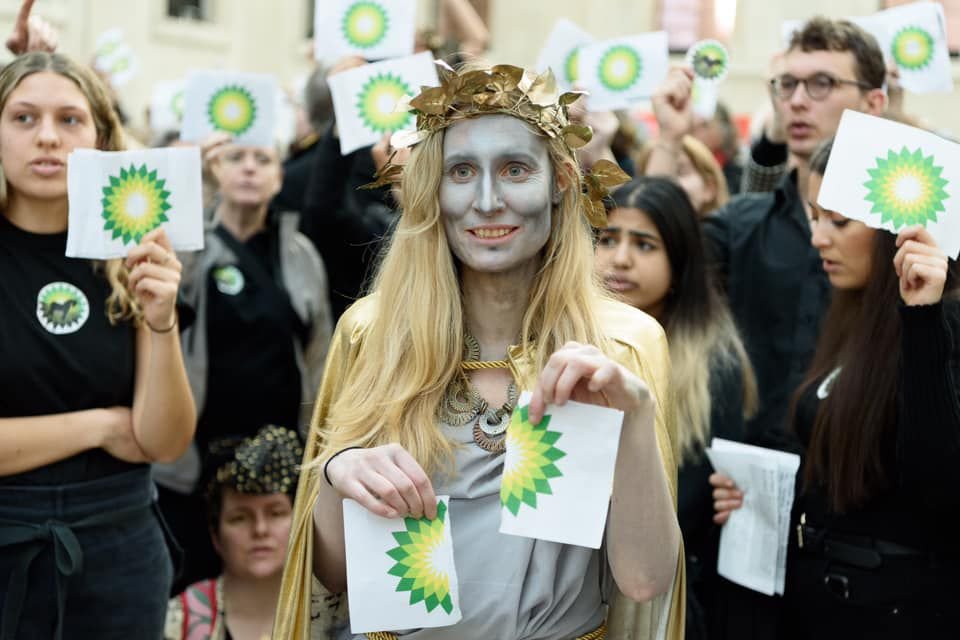Museums will need ethical funders all the more after the coronavirus crisis

Written by Joe Dunning and published originally by The Art Newspaper, 16 June 2020.
Gone are the days when it did not matter where the money came from as long as you did good with it. In recent years, there has been increasing scrutiny of the ethics of corporate sponsors and private donors in the art world, with particular focus on companies and individuals accused of putting profit before anything else.
Museums supported by the oil giant BP have been the site of numerous protests by climate activists. Protesters have called on the Guggenheim, the Met and the Louvre, among others, to cut ties with the Sackler family—renowned today as much for its role in the US opioid crisis as for its longstanding arts philanthropy. Last year, the Whitney Museum parted ways with its vice-chairman Warren Kanders following criticism of his ownership of a company that manufactures tear gas. (Kanders recently announced the company was selling off its divisions in crowd-control technology.)
In the past few weeks, we have seen shocking images of tear gas used in streets up and down the US on peaceful protesters calling for an end to systemic racism after the murders of George Floyd and Breonna Taylor by police officers. These atrocities, together with the disproportionate death toll of coronavirus among people from poor and minority backgrounds, are a heart-breaking reminder of just how precarious and precious life is.
At the heart of all these protests is the same core message: activists are calling on our institutions to hold themselves to a higher standard, whether on climate change, health or systemic racism. Underpinning this call is the fundamental and emphatic message that lives are at stake; people come before anything else. And there is an implicit promise, too: we will hold to account those institutions, companies and individuals who do not put people first.
As museums consider how to respond to the current crises, as they address challenges that would have once seemed insurmountable, and as they plan to reopen their doors to a world that has changed significantly, the expectation that they hold themselves to a higher ethical standard is surely not going away.
If anything, it will grow. According to analysts, the coronavirus pandemic has accelerated a number of long-term changes in attitude and behaviour to such an extent that they will become the norm in the post-pandemic world. People plan to travel less—as Tate Modern’s director Frances Morris put it recently, “how amazing it is to have these focused, clear, effective and enjoyable conversations without the fog of jet lag.” Many will continue to work from home, shop more online and locally when they do buy in person. Surveys say we are making more sustainable consumer choices.
What was coming is now here to stay. In the current upheaval, and amid a broader shift towards sustainability, people are looking closely at how businesses are behaving. Which corporations are taking government bailouts intended for small businesses and still paying executives big bonuses? Which are laying off staff and which are ensuring their safety and financial security? Which are contributing to developing a vaccine? As recession looms, these questions matter now more than ever, and experts believe that we will have long memories of the companies that behaved well and those that behaved badly.
They matter from an ethical point of view, but they also matter to the bottom line. We know that millennials—a key audience for almost every business—believe in the importance of brands making a positive contribution to society and will spend more on those that do. The signs are there that this attitude is being adopted more widely, and that more and more people will vote with their wallets on a brand’s ethical performance.
What does this mean for museums that have been hit financially by closure, some of which are confronting the gruesome reality that they may not reopen? Faced with the unthinkable, it would surely be tempting to accept any form of funding, at any cost, just to survive.
There is another path. There are plenty of companies for which ethical practice—diversity, inclusivity and environmental responsibility—is a non-negotiable part of their identity. They could have the advantage in a post-pandemic world where value is increasingly centred around people and where sustainable supply chains are a must, not a choice. For those businesses, supporting the visual arts is a particular opportunity, because large numbers of their target audiences care about the visual arts. For example, 16-35-year-olds make up around a quarter of the UK population but, according to Arts Council England, they account for 44% of visual arts audiences. By supporting the visual arts, ethical businesses can meaningfully engage with millennials—a group that will spend selectively on brands that align with their values—on a subject that matters to them.
With this audience in mind, now is the time for those businesses to stop thinking about support of the visual arts as a nice-to-have and start thinking about it as an essential part of their recovery plan and long-term growth strategy. But it will only work if their support stands out. From the museum side, this means abandoning the familiar corporate sponsorship template and offering supporters unique and creative solutions.
This is why I have founded Dunning & Partners: a consultancy to help ethical businesses make a real difference to the visual arts. This involves working with a museum to identify its most pressing needs or exciting opportunities, and partnering with a business to address them in a unique and creative way. It is a bespoke approach that rejects templates. Crucially, it is one that enables museums to ensure their vital funding partnerships also put people first.
- Joe Dunning is the founder of Dunning & Partners, which specialises in supporting the arts through creative collaboration with business.